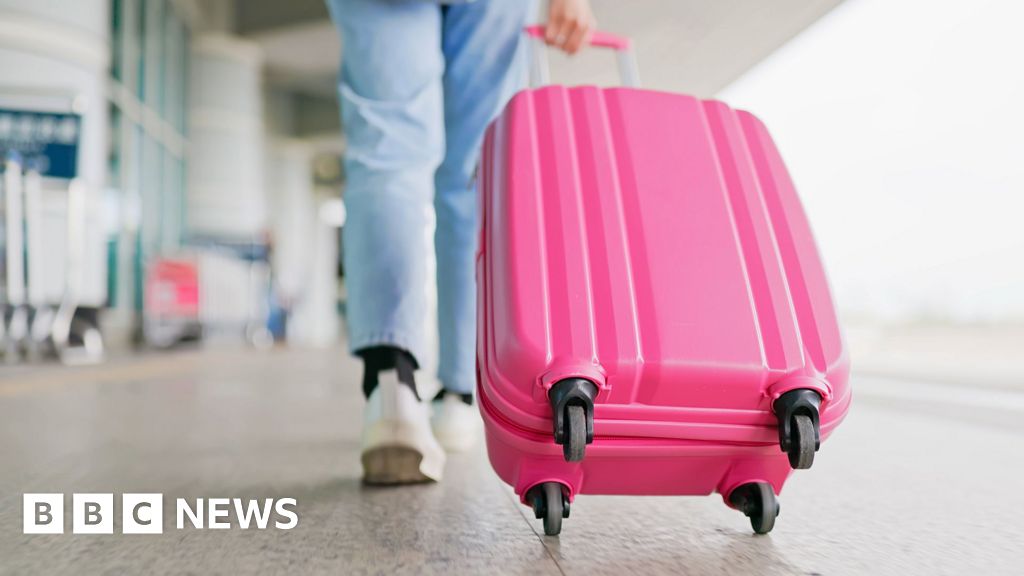ARTICLE AD BOX
By Simon Read
Business reporter, BBC News
Image source, Getty Images
People are taking out more money when they visit ATMs, with the average amount climbing more than £10 to just under £80 in the last two years.
But they're using cash machines 40% less than before and withdrawing £44 a month less.
Withdrawals are now nearly £100m less a day than in 2019, said cash machine network Link.
"Covid has turbocharged the switch to digital," said Nick Quin, head of financial inclusion at the network.
Before the pandemic, each adult in the UK visited a cash machine on average three times a month, taking out on average £66.99. That amount has climbed to £78.54.
However, 18 months after the coronavirus crisis started, visits are now less than twice a month.
That means the total average amount each month withdrawn per person has fallen £44, from £200.97 to £157.08.
The total value of Link ATM withdrawals is currently running at around £1.6bn a week, compared with around £2.2bn in 2019.
Meanwhile the amount people can spend on a contactless card rocketed to £100 earlier this month, after climbing to £45 in April 2020.
"Crucially, even though we're withdrawing almost £100m less per day, millions still rely on cash, especially in the most deprived areas of the country," said Mr Quin.
"It is important we continue to protect access to cash across the country."
Image source, Getty Images
Cash use
The latest Financial Lives survey from the Financial Conduct Authority showed that more than five million people rely on cash every day.
Link's new figures suggest that some wealthier parts of Edinburgh and London have shown a fall in cash machine use by as much as 60%.
But there remains a greater reliance on cash in areas such as Liverpool, Bradford and Birmingham where the fall in ATM usage is considerably smaller.
Link said it heard from more 400 communities this year wanting better cash access.
It has installed more than 70 machines across the country in response to those requests and a further 30 in areas identified as lacking cash access.
It said it is encouraging people to speak up if they find it difficult to access cash free of charge.
"It is important we continue to protect access to cash across the country," said Mr Quin.
Link said the number of ATMs has not dropped as quickly as cash usage.
Since the beginning of the pandemic, the number of free-to-use ATMs has dropped 9% from 45,000 to 41,000.
Rural travel
In July the Financial Conduct Authority warned that people living in rural areas are having to travel further to find somewhere to withdraw and deposit cash free of charge.
The City watchdog said almost every urban resident has access to a bank, building society, post office or ATM within two kilometres of their home, but only three-quarters of the UK rural population has similar access.
It is considering stronger requirements of the sector to ensure the millions of people who rely on notes and coins have access to it.
Meanwhile the charity Age UK said that people required the same guarantee of access to cash as they did for running water, electricity and the post.
About 2.4 million people aged 65-and-over rely on cash in their daily lives, it said.
The charity warned that many would face being excluded from society if they could not get hold of notes and coins.
Constituency areas with the smallest percentage declines in the volume of cash withdrawals:
- Birmingham, Hodge Hill, 20%
- Birmingham, Perry Barr, 23%
* based on figures from Link comparing August 2019 with August 2021
Constituency areas with the biggest percentage declines in the volume of cash withdrawals:
- Cities of London and Westminster, 60%
- Edinburgh North and Leith, 60%
- Holborn and St Pancras, 58%
* based on figures from Link comparing August 2019 with August 2021

 3 years ago
141
3 years ago
141








 English (US) ·
English (US) ·